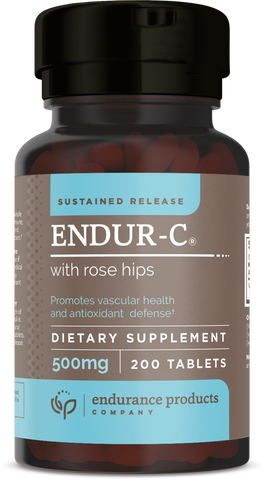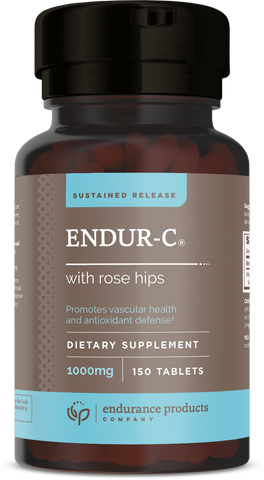One of your best strategies to maintain healthy immune function during the fall and winter months (and all year long) is to make sure you get enough vitamin C. It sounds easy enough, but turning this goal into a daily practice can feel overwhelming. You can simplify the process with a solid strategy. It starts with five things you can do right now to up your intake of vitamin C.
1. Feel good about boosting your vitamin C intake.
When you feel good about focusing on your vitamin C intake, you’re more inspired to take action. It may sound corny, but vitamin C is where you get your immune superpowers. It’s a triple threat against foreign invaders. First, vitamin C helps maintain the protective membranes that line your nose, mouth, throat and intestinal tract. Next, it helps to produce and activate key immune cells. Finally, vitamin C and its antioxidant action helps your body maintain a healthy inflammatory response.
Trouble is, your body can’t make vitamin C (that’s why it’s called an essential nutrient), so you need to get what your body needs from the foods and dietary supplements you consume.
2. Add vitamin C-rich foods to your daily plate.
Vitamin C is found in fruits and vegetables, especially citrus fruits. Oranges, strawberries, papaya and grapefruit are particularly good fruit sources. Sweet red and green peppers, broccoli and brussels sprouts are good vegetable sources.
But vitamin C is a finicky molecule. Its content in plant foods can vary widely depending on when and where it’s grown, how it’s transported from farm to store, how long it sits on the shelf, and how it’s stored. Plus, how you prepare a food can make a big difference in whether you preserve its vitamin C content or lose it (more on this below).
3. Prepare your food to protect vitamin C.
As a water-soluble vitamin, vitamin C is easily lost during food preparation. Refrigeration and freezing helps. In fact, commercially frozen foods are often higher in vitamin C than their fresh counterparts shipped across long distances and stored on supermarket shelves.
In one study, researchers compared the effect of four home cooking methods on the vitamin C content of 13 common vegetables like cauliflower, broccoli and Brussels sprouts.1 Steaming or microwaving pretty much preserved a vegetable’s vitamin C content. By contrast, pressure cooking led to over 20 percent loss of vitamin C, on average. Boiling in water had the most dramatic effect with more than half of a vegetable’s vitamin C lost during cooking.
4. Know your vitamin C gap.
Most Americans fail to consume enough vitamin C to meet even basic nutritional needs, according to the latest National Health and Nutrition Examination Survey (NHANES) and the 2015-2020 Dietary Guidelines for Americans.2
For example, over 80 percent of adults who smoke fail to consume enough vitamin C. Non-smokers fare somewhat better, but about 40% still fall short of consuming an adequate intake to fully meet the body’s needs, including fortifying immune function.
5. Close your vitamin C gap with a daily supplement.
A high-quality daily supplement can help close the gap between what your food provides and what your body needs. For daily use, ENDUR-C® Vitamin C with Rose Hips is an ideal option. Plus, you’ll benefit from the advantage of our sustained-release tablet technology.
Here’s why. Each ENDUR-C® tablet features a vegetable wax matrix that slowly dissolves, releasing vitamin C over 5 to 7 hours. In this way, you are able to absorb more vitamin C (and lose less in your urine) compared to a similar immediate-release tablet.*
You’ll find this innovative tablet technology in all our sustained- and extended-release supplements. To learn more, see 7 Things You Need to Know About Sustained-Release Tablets.
Bottom line
For immune defense all year long, be sure you get enough vitamin C. Start with eating more vitamin C-rich foods (prepared to prevent vitamin C loss). Next, fill any nutrient gap by taking a high-quality vitamin C supplement every day. It’s that simple.
* These statements have not been evaluated by the Food and Drug Administration. This product is not intended to diagnose, treat, cure or prevent any disease.
References
1. Bureau S, Mouhoubi S, Touloumet L, et al. Are folates, carotenoids and vitamin C affected by cooking? Four domestic procedures are compared on a large diversity of frozen vegetables. LWT Food Sci Technol. 2015;64:735e741.
2. US Department of Health and Human Services, Office of Disease Prevention and Health Promotion. Scientific Report of the 2015 Dietary Guidelines Advisory Committee. Available at: https://health.gov/dietaryguidelines/2015-scientific-report/.


